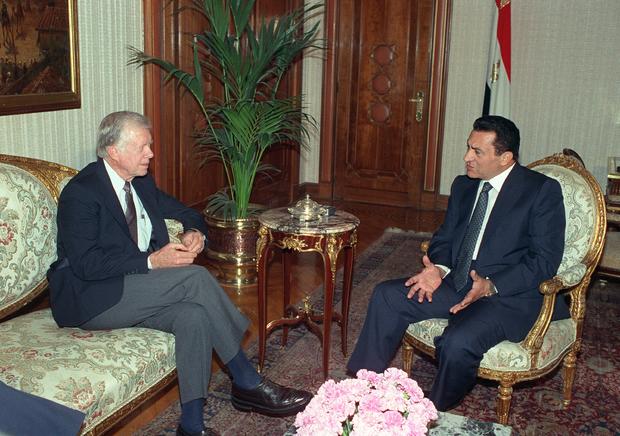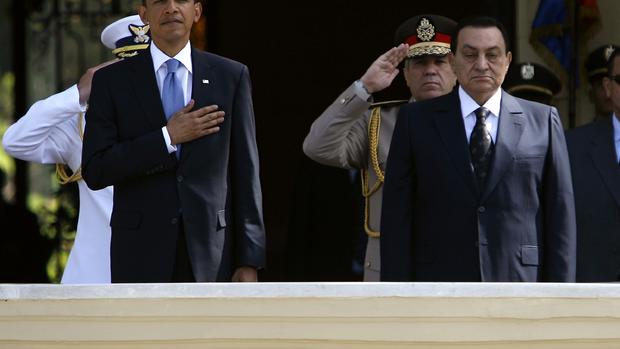Jimmy Carter: Mubarak Will "Have to Leave"
Amid growing political unrest in Egypt, former President Jimmy Carter guessed on Sunday that Egyptian President Hosni Mubarak will "have to leave."
Mr. Carter, speaking at the Maranatha Baptist Church near Plains, Georgia, called the political turmoil in Egypt "the most profound situation in the Middle East since I left office," and said his "guess is Mubarak will have to leave," according to Georgia's Ledger-Inquirer.
Mr. Carter, who served as president from 1977-1981, was a key player in brokering a peace deal between Egypt and Israel in 1978. Throughout negotiations for the agreement, which is still in place, Carter worked with Egypt's president Anwar al-Sadat and Israeli Prime Minister Menachem Begin. Mubarak became president after Sadat's assassination in 1981.
"I know Mubarak quite well," Mr. Carter said on Sunday. "If Sadat had a message, he would send Mubarak."
Mr. Carter said that Mubarak had, over the course of his 30 years as president, "become more politically corrupt," and "perpetuated himself in office."
While the White House struggles to walk a fine line of diplomacy on the matter of Mubarak's future - juggling U.S. interests with those of Egyptian dissenters - Carter said it was time for him to go.
"The United States wants Mubarak to stay in power, but the people have decided," Carter said. "Other U.S. presidents would privately tell Mubarak you have got to have freedom."
The Obama administration has throughout the conflict spoken out in support of the rights of the people, and has urged Mubarak to take "concrete steps" to expand rights in Egypt. But the White House has stopped short of calling for the president's resignation.
"I'm not, you know, prepared to comment on what kind of democratic process the Egyptian people can construct for themselves," said Secretary of State Hillary Clinton on CBS' "Face the Nation" on Sunday, adding that she would not speculate about "who goes or who stays."
"What we are focused on now is a transition that will meet the needs of the Egyptian people and that will truly establish democracy, not just for one election and then no more elections after that or not for radicals, extremists, violent elements to take over," Clinton said.
Of Omar Suleiman, who Mubarak recently appointed as Egypt's vice president, Mr. Carter said he was "an intelligent man whom I like very much," the Ledger-Inquirer says.
"In the last four or five years when I go to Egypt, I don't go to talk to Mubarak, who talks like a politician," the former president continued. "If I want to know what is going on in the Middle East, I talk to Suleiman. And as far as I know, he has always told me the truth."


